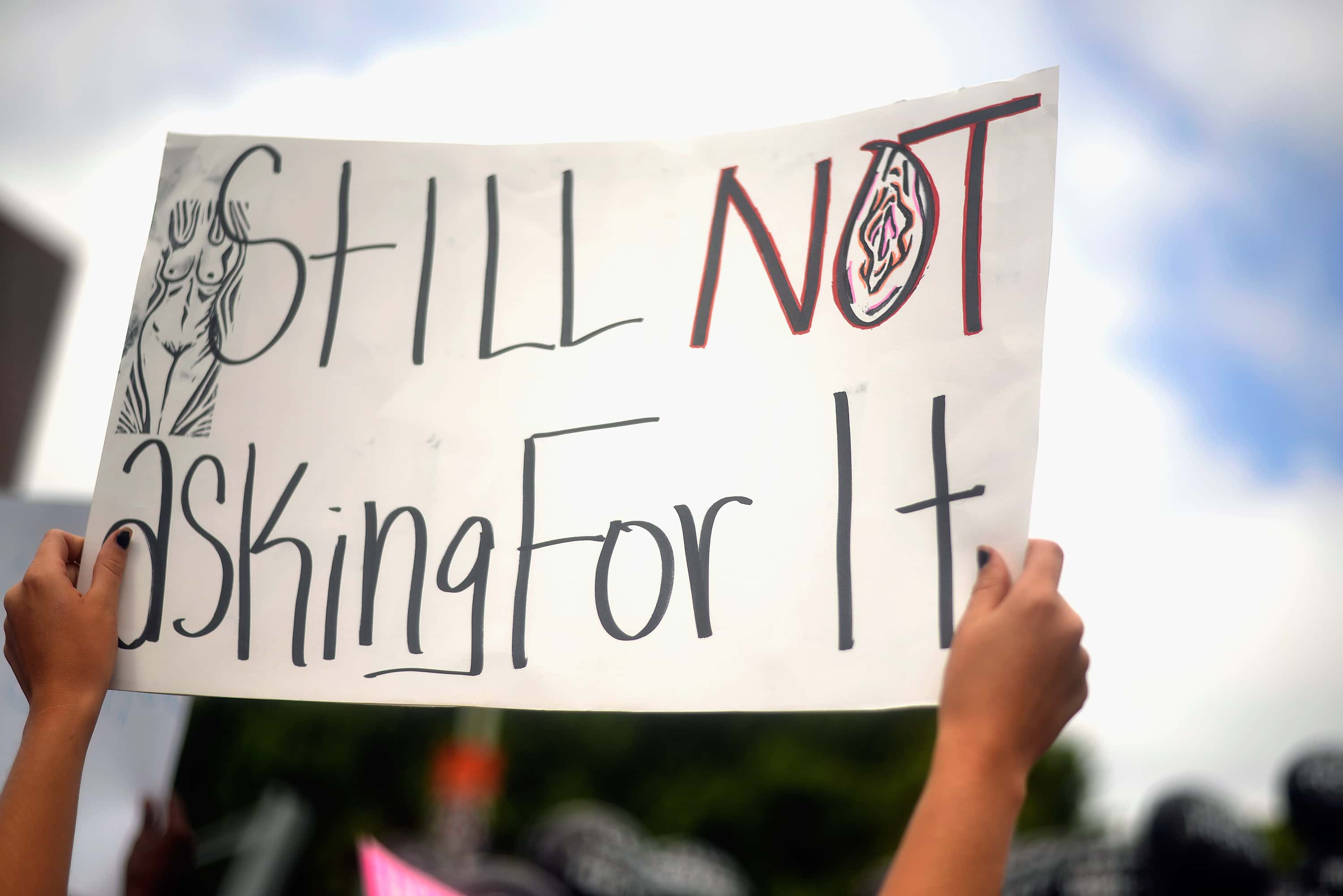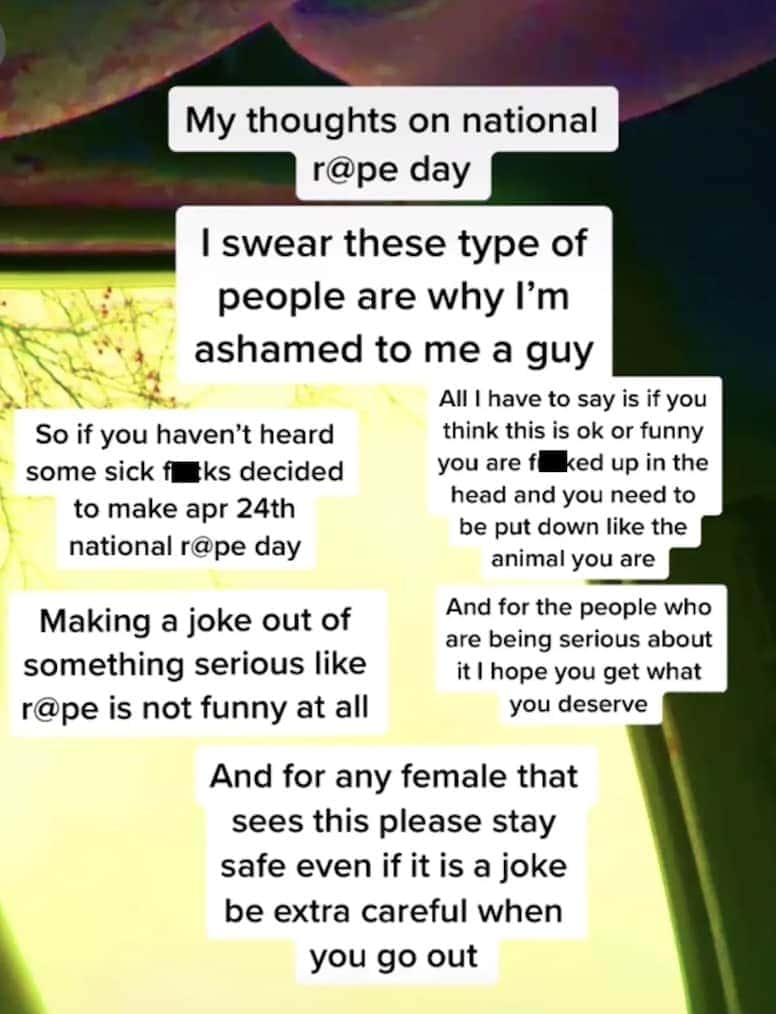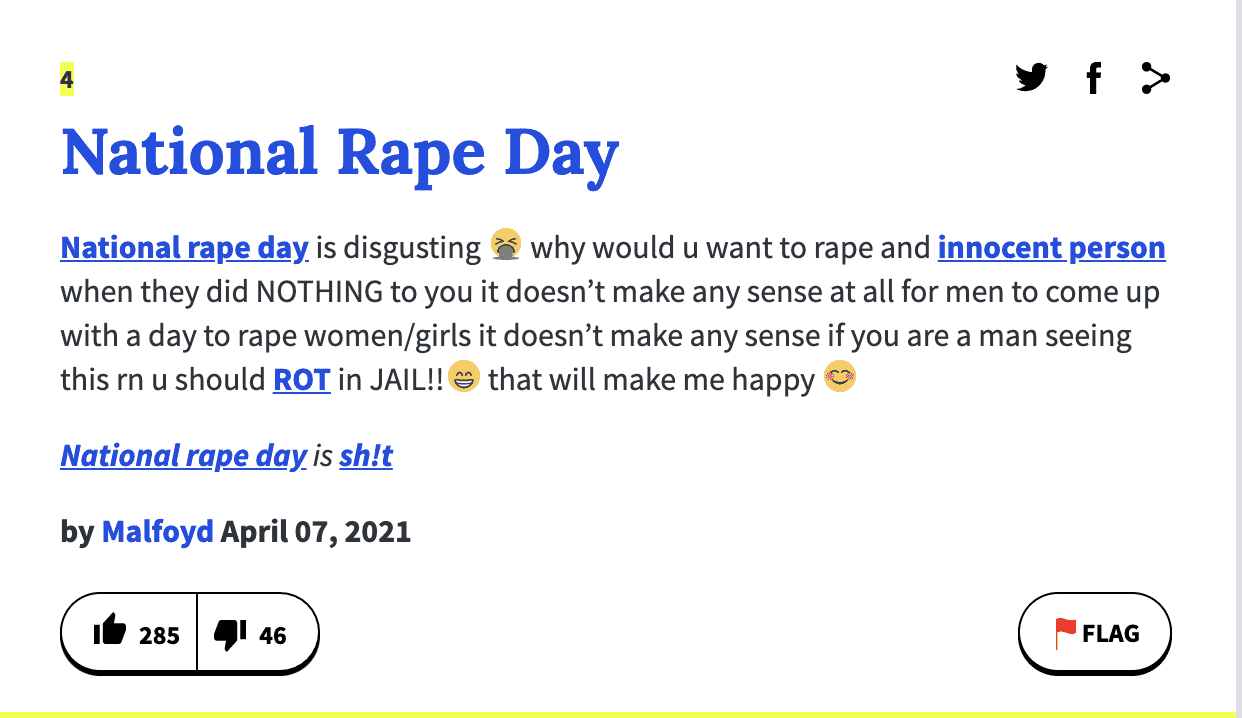Is 'National Rape Day' real? How 'unsubstantiated' TikTok claims sparked false rumors about disgusting day

A worrying new TikTok trend has surfaced. Dubbed, 'National Rape Day', many social media users were claiming that people were calling for a 'national day' for sexual assault and violence. Users urged women to avoid going outside on April 24 or do so in large groups and with guns or other means of protection.
#April24 has quickly taken off both on TikTok and other platforms like Twitter since those claims have come to light. There are now a large number of users with tips and guidance on avoiding being attacked. According to these counter-protesters, proponents said that sexual assault will be legal all day on April 24. There are also TikTok videos promoting the day, and even tips by men on how to assault women.
READ MORE
These claims are completely false. There is no 'day', either in the United States or in any country around the world where sexual assault, rape and other sex crimes are legal. They are very much illegal and will continue to be so on April 24. The trend is just the latest example of how social media can be hijacked to spread fake news. Here's how a TikTok trend has quickly blown up to take over the news and the truth you need to know.

How the trend went viral
It's unclear where, how, or who began the #April24 trend. It came to light only after several prominent TikTok users began to warn their followers about the day, called 'National Rape Day' or 'National Sexual Assault Day'. @la.tania.ftn2, for example, posted a warning video on April 17. It has so far been viewed over 1.5 million times. The user claimed, "I just saw a video on tiktok and i had to make a video myself … because I need to make sure that you guys are aware that there’s a video going around Tiktok of disgusting men … and they literally came up with a date to go around and rape women and children."
Thanks to her and several other influencers, warnings began to go viral all over TikTok and eventually spilled over to Twitter, Facebook and Instagram. Many users claimed to have either seen the original video calling for the 'holiday' or knowing someone who had. There were even reports that TikTok had taken down the video, made by six men. The men were not identified. These claims were without any proof, none of those who shared the warning messages shared screenshots or links to the original video.
Despite the lack of evidence, the trend caught the attention of many social media users, all who began making similar unsubstantiated claims. As of the time of reporting, there are still users on Twitter who are making claims about April 24.

Claims unsubstantiated says TikTok
USA Today reviewed over 100 TikTok videos, but couldn't find any links or examples of the original video. The publication also reached out to some of the TikTok users who made the claims but did not hear back. Even Snopes, the fact-checking website, failed to find the original video or any samples of it. Snopes reached out to TikTok for comment and the company responded by calling the trend "unsubstantiated". TikTok said, "The supposed ‘National Rape Day’ trend being reported upon is abhorrent and would be a direct violation of our Community Guidelines, and while we haven’t seen evidence of this trending on our platform, our safety team remains vigilant and would remove any such content."
The fact is that 'National Rape Day' does not exist, either on TikTok or any other platform. In fact, the trend isn't new. Snopes noted that "this 'joke' or 'prank or 'hoax' campaign has been around for several years." In fact, an archive from Urban Dictionary shows entries for 'National Rape Day' dating as far back as 2018. The entries mark different dates each time and even make different claims. They have since been deleted.

Even though this trend is a complete fake, we urge you to be cautious. It is unclear how many people have seen this trend and if anyone believes it to be true, but it is likely there are a handful of people who would. Despite being listed on Urban Dictionary, we are yet to see any crimes linked to the day, so it is likely just another Internet meme. Nonetheless, we urge you to take care on April 24.
If you do see someone promoting the day, report them at the earliest. Also ensure that you educate your friends and family about the fact that this trend is a hoax and that no such day exists. Beyond the claims, there is no active campaign to promote the day. Remember, rape or sexual assault, was, is, and always will be a crime.










